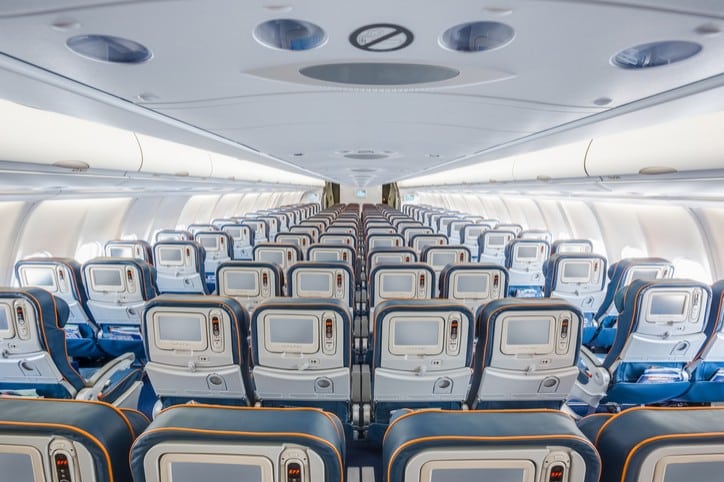Latest News

Photo: Inmarsat
Inmarsat’s full year 2018 financial results included a remarkable Aviation segment surge to over $256 million for the 12 months to the end of December, a nearly 41 percent increase compared to the same stage last year. In-Flight Connectivity (IFC) revenues doubled to more than $101.3 million in 2018. It reached $72.4 million for the three-month period to the end of December — a more than 50 percent increase compared to the same stage last year. Inmarsat’s surge in aviation offset a 2.6 percent year-over-year decline in its Maritime revenues,
“A strong [fourth] quarter for Aviation; increasing visibility on the long-promised value creation from IFC,” said Jeffries Satellite Equity Analyst Giles Thorne, in a research note. “Revenue was plus 4.9 percent ahead, EBITDA was 43.1 percent ahead. The FY18 margin of 51.5 percent landing far above the original fears of ‘around 40 percent’ and then ‘above 40 percent’ (2Q18) and then ‘greater than 45 percent’ (3Q18).”
Maritime accounted for $552.8 million of Inmarsat’s full year revenues in 2018, a drop of just under $15 million compared to the same stage last year. Overall, Inmarsat reached $1.46 billion in revenues, a 5 percent increase compared to the same stage last year. Inmarsat’s government business reached $381 million for the year, an increase of just 4 percent. However, its enterprise business saw a revenue fall, and only reached $130 million in 2018, compared to $132.6 million in 2017.
Yet, despite good increases in revenues across the board, profits after tax were only $125 million, a drop of around $60 million compared to the same stage last year.
Thorne was positive on this set of aviation segment results for Inmarsat. “The 4Q18 results were good: Total revenue plus 3.2 percent ahead of consensus, MSS revenue plus 2.9 percent ahead, MSS EBITDA plus 11.6 percent ahead, total EBITDA plus 10.7 percent ahead. The out-performance has been driven by Aviation. Importantly, there were no one-offs in the quarter to undermine the performance. The 2019 consensus also looks well anchored by the freshly issued 2019 guidance: MSS revenue of $1.3-1.4 billion (plus 1.8percentahead of consensus at the mid-point). The newly issued 2021 capex of $450-550 million (also in-line with consensus) signals the long-promised meaningful step-down from 2020 of $500-600 million,” he added.
Roshit Ranjit, a satellite equity analyst at Deutsche Bank, added in a research note, “Inmarsat has announced a strong EBITDA result, c11 percent ahead of company compiled consensus given a strong Aviation result. Group revenues meanwhile were 3 percent ahead of consensus, and supported by Government/Aviation. Within the mix, Maritime EBITDA had a small miss (minus 1.6 percent versus consensus) which could disappoint some whilst FleetXpress (FX) installations of 649 vessels were slightly ahead of Q3 (604 vessels). From a guidance perspective, Inmarsat has reiterated the medium term guidance. There is new 2019 revenue guidance which is in-line with consensus and the new guidance on 2021 capex is supportive as it points to capex trending down (some had feared this would fail to happen).”
Get the latest Via Satellite news!
Subscribe Now